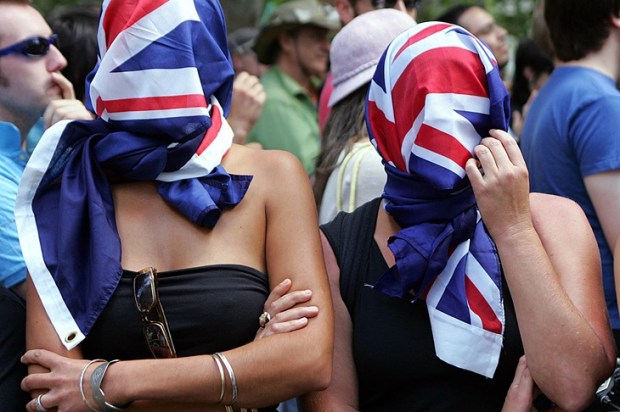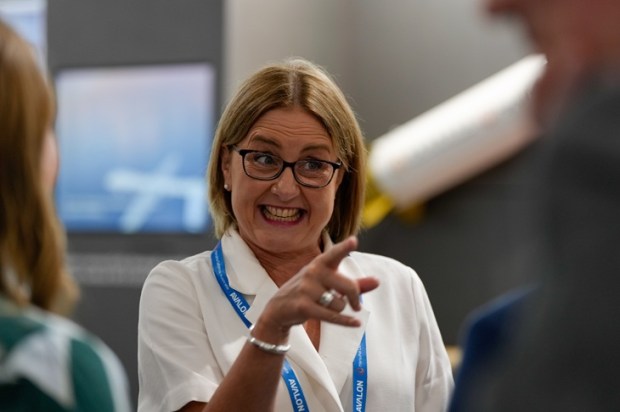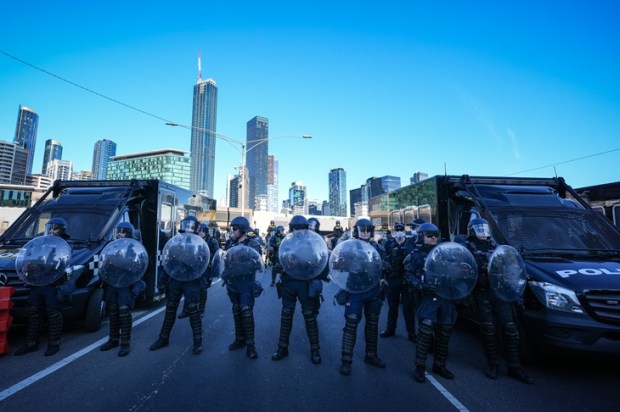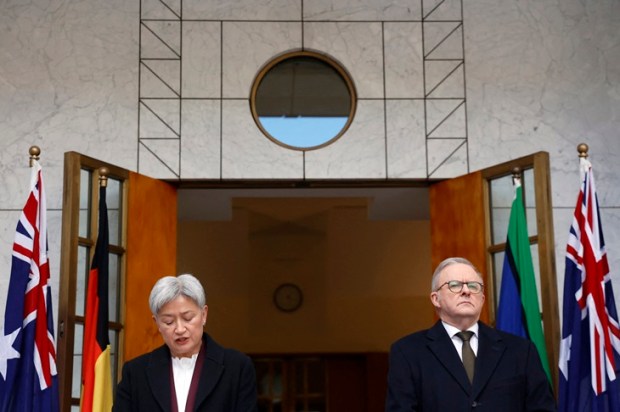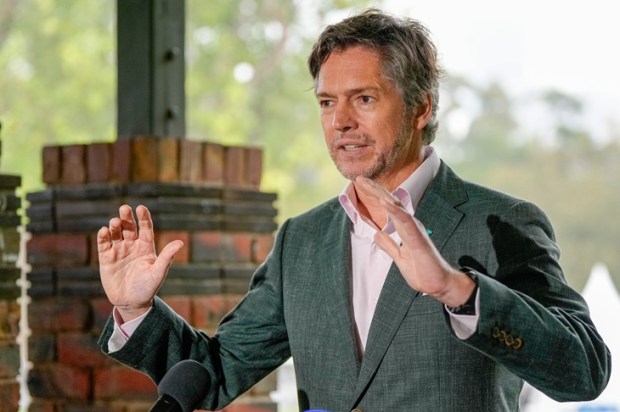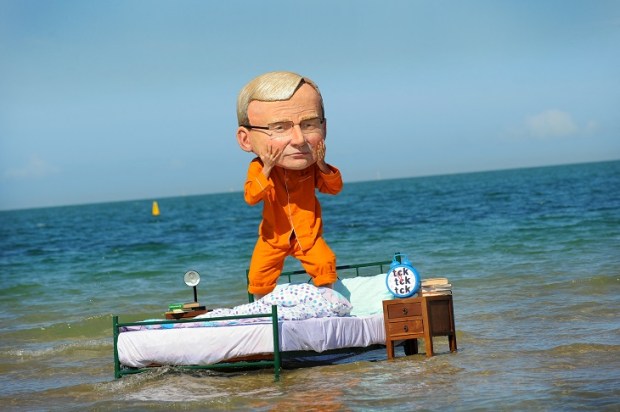My guilty pleasure involves flicking through the pages of old political magazines, side-eyeing failed speculation, particularly from those who built an alternate future around the presumed victory of Joe Biden.
The wisdom of what never came to pass is fascinating.
More importantly, it teaches us about the political movement sitting on the other side. If we know how the Left think, we can predict what happens next.
In this spirit, I wandered across an article from Democrat podcaster Ben Rhodes in the July 2024 issue of Foreign Affairs titled: A Foreign Policy for the World as It Is.
Yikes, you might be muttering, but there are gems of self-reflection as we prepare for an almighty reshaping of America’s approach to foreign policy under Donald Trump.
(The magazine also makes a great mouse mat, which has been its primary function in my life.)
‘The Biden Administration’s mindset of restoration has occasionally struggled against the currents of our disordered times,’ writes Rhodes.
He paints the second coming of Biden as a pillar of strength and calm against political turbulence following the Covid years where trust in government (and its media arm) collapsed.
We might say the same thing about how Australia’s major parties approach the Federal Election.
They perceive themselves as the rightful inheritors of power, but Quiet Australians see them as shrivelled pylons left in the water after the jetty has burned away. Visible, but useless. They blacken the hands of anyone who tries to lash a boat to their unsteady form.
The United Kingdom is in a similar position and while Reform’s Nigel Farage did not light the fire under the grand old parties, he certainly made sure to splash a little petrol on the wood as it took hold.
Restoring superpowers is something commentators assumed the public wanted, and they were partially right. People are hungry for a restoration, but they want to resurrect the era prior to the progressive empire.
Rhodes is right when he says:
‘The old rules-based international order doesn’t really exist anymore. Sure, the laws, structures, and summits remain in place. But core institutions such as the UN Security Council and the World Trade Organisation are tied in knots by disagreements among their members. Russia is committed to disrupting US-fortified norms. China is committed to building its own alternative order. On trade and industrial policy, even Washington is moving away from core tenets of post-Cold War globalisation … even the high-water mark for multilateral action in the Biden years – support for Ukraine in its fight against Russia – largely remains a Western initiative.’
All the problems Rhodes goes on to list about what we call the political swamp, represent the cracks in the Establishment exploited by the Trump-Vance Administration. These imperfections helped to break apart nearly a century of corruption. The spectacle is damaging the Democrats and making it difficult for them to oppose even the wildest of Executive Order.
I do not agree with Rhodes on his advice that the next American regime should shift away from the ‘Western-centric view’ and that ‘meeting the moment requires abandoning a mindset of American primacy and recognising that the world will be a turbulent place for years to come’.
Trump has done precisely the opposite, and in the space of a few weeks, re-asserted the dominance of America and the West, proving that it was a sleeping lion and not a dead street cat.
Withdrawing wasted fortunes from USAID’s international projects has weakened nations in the Global South. It also gave them back a measure of autonomy. America was certainly meddling ideologically in ways that seem immoral, to put it lightly.
Meanwhile, threatening to carry out ruthless attacks on unhinged militias, as Trump has done to the Houthi, forces their shadowy backers (in this case Iran) to either desist or risk becoming a target of the President’s fury. If the world feels safer with America performing the role of global policeman, this is Trump breaking up a street fight with a baton and taser.
Rhodes says of a possible Trump return:
‘To properly outline the dangers of a second Trump term, it is necessary to take Trump’s arguments seriously, despite the unserious form they often take. Much of what Trump says resonates broadly.’
And it is what follows next that I find interesting, coming from a Democrat.
‘Americans are tired of wars; indeed, his takeover of the Republican Party would have been impossible without the Iraq war, which discredited the GOP establishment. Americans also no longer trust their elites. Although Trump’s rhetoric about a “deep state” moves quickly into baseless conspiracy theory, it strikes a chord with voters who wonder why so many of the politicians who promised victories in Afghanistan and Iraq were never held to account. And although Trump’s willingness to cut off assistance to Ukraine is abhorrent to many, there is a potent populism to it. How long will the United States spend tens of billions of dollars helping a country whose stated aim – the recapture of all Ukrainian territory – seems unachievable? Trump has also harnessed a populist backlash to globalisation from both the right and the left. Particularly since the 2008 financial crisis, large swaths of the public in democracies have simmered with discontent over widening inequality, de-industrialisation, and a perceived loss of control and lack of meaning. It is no wonder that the exemplars of post-Cold War globalisation – free trade agreements, economic cooperation itself – have become ripe targets for Trump.’
Much of this ultimately proved true and I wonder why, if the weaknesses of the existing regime were known, no real action was taken to improve the situation.
Rhodes correctly predicted a withdrawal (albeit temporarily) of support for Ukraine and the threat to walk away from Nato. He even foresaw a potential distancing of Washington from Europe, although I would argue that the purpose and result are not what he imagined, at least in this article.
From my reading of Washington, Trump hoped the terror of isolation would convince Europe to strengthen its domestic defence alliances and relieve the pressure on America. Ironically for the Left, who haven’t quite realised this yet, America’s threat to abandon Europe made Europe more formidable and thus, strengthened America’s negotiating position against Russia. Soon, Europe will pose a credible deterrent to Russian aggression which means Trump only has to solve one leak on the map, not a sieve of porous borders. Washington probably hopes it can force a manageable (rather than perfect) peace with Russia to stave off the more dangerous war brewing with China.
If the motivations of Trump and his peers are incorrectly guessed, then so too are the predicted repercussions. I suspect this one from the article will never come to pass: ‘Consider the opportunity a Trump victory would present to North Korea. Fortified by increased Russian technological assistance, Kim could ratchet up military provocations on the Korean Peninsula, believing that he has a friend in the White House … China’s military will be ready for an invasion of Taiwan by 2027.’ He further speculates that the ‘twilight of a Trump presidency’ could present an opening.
Instead, we have seen Trump invite Taiwan’s largest semiconductor manufacturer to invest $100 billion in American-based production, sending a loud and unmissable signal to China. This move reduces the risk of interruption to military supply any potential conflict may bring, making it easier for the US to defend Taiwan. Some paranoid members of the Taiwanese regime mistakenly saw this as America removing Taiwan’s treasure, so to speak, which they presumed forces America to defend it. This is wrong.
Backing up Trump’s support of Taiwan, the most recent G7 meeting dropped its references to One-China policies, removing the sentence, ‘We do not support Taiwan independence.’ Doing so triggered the usual unhinged response from China, this time delivered via their embassy in Canada.
It is common practice to move strategic assets to safer locations away from the front line when war lingers, and expanding chip manufacturing to America is effectively putting a military advantage into a safe. Once operational, it ensures America has access to the technology it requires to defend Taiwan, and its allies.
It is my view that many diplomats and politicians share strategic thinking with those from the first world war, whose mindset was wholly unprepared for conflict. They were stuck in the idea that trade represented security and no large trading partner would risk their piles of cash to wage war. They were wrong. Trade has the structure of clouds. They can cause a powerful storm but you will still fall straight through them. You have to think like a general guarding pieces, not a banker trading assets. Politics and war are the same entity.
As for the musings on North Korea, it is not at all obvious what will happen. Caught between Russia and China, North Korea’s future could change dramatically depending upon the peace deal between Ukraine and Russia. If Putin decides to realign Russia with the West, and nudge China aside, then North Korea will be left as the awkward piece on the geopolitical board that doesn’t quite fit. Is it likely that Trump could leverage his personal relationship with Kim Jong-un and de-radicalise the hermit kingdom? No. But it is possible that Putin and Trump could manage it with a few lifelines, probably to the annoyance of Xi Jinping who likes having the Wild Card of North Korea scaring the Pacific? Yes. There are ways to spin that future. China could also offer riches to Kim and use him to create a disaster.
No one is going to criticise a commentator for failing to foresee the Gaza Riviera, but the general idea behind the Trump shakeup was predictable … if you speak the language of a businessman.
The World Economic Forum spent years telling us they wanted a Great Reset, well, here it is. Trump is resetting pretty much every rule and game, forcing a necessary return to first principles.
In many ways, this shock tactic replicates the policy cleansing that takes place during wartime, without the war.
For the West to survive this century as the dominant power, it has to be feared. America is not becoming protectionist, as claimed by numerous papers in recent weeks, it is becoming defensive. These might look the same at a glance, but a protectionist empire does not empower others as Trump has done by goading the Europeans into being responsible.
When it comes to predictions, you have to know what a leader wants for their nation to guess what they will do. Whether Russia accepts a peace deal with Ukraine, for example, it is not so much about the terms offered with Ukraine but rather how wary Putin is of China’s growing power. He is a student of history, and he knows the risk of a so-called friend in charge of an expansionist empire. China could turn on Russia as Hitler turned on Stalin. America is a safer global leader and the oligarchs in his regime are growing restless about Russia’s exclusion from the West. With a strengthened Europe on one side, the last thing Putin wants is China to stir chaos in the Pacific and demand help. Suddenly Russia really could be stretched and incapable of holding its position in Ukraine and Crimea.
The map is shaped by military reality, not moral clarity. We can only wait to see if it is our hopes that come to pass, not our fears.
Flat White is written by Alexandra Marshall. If you would like to support her work, shout her a coffee over at donor-box.


